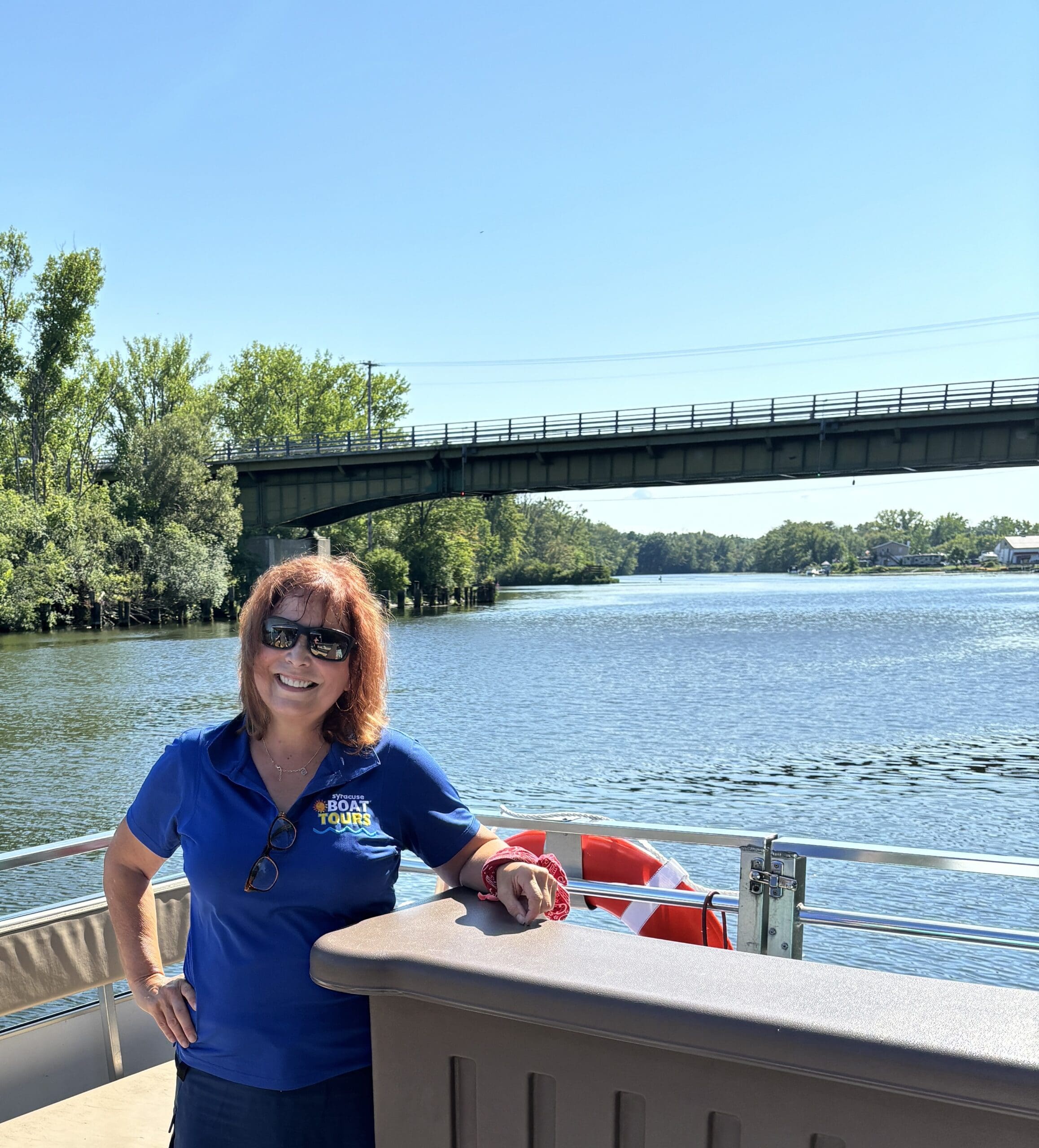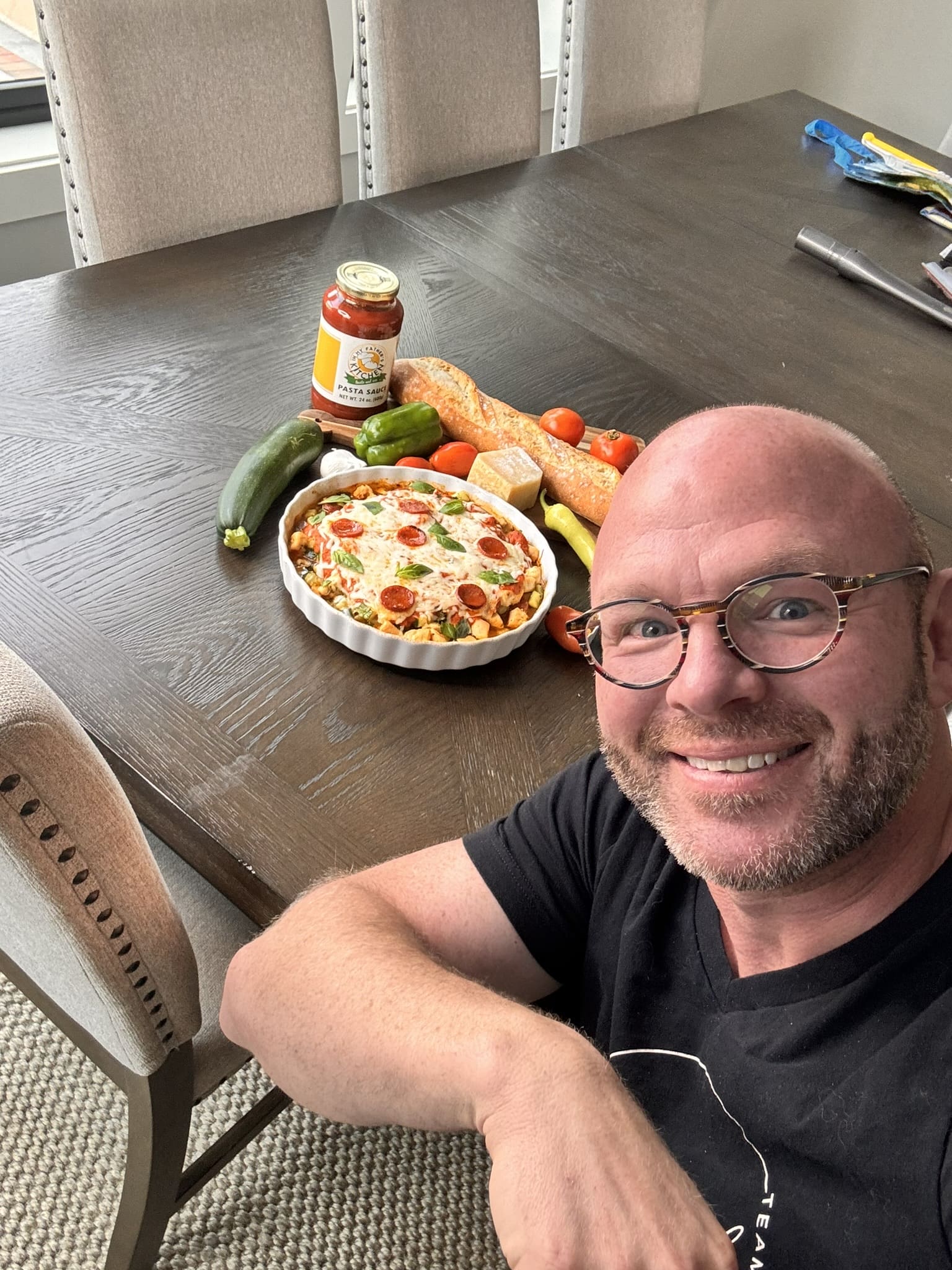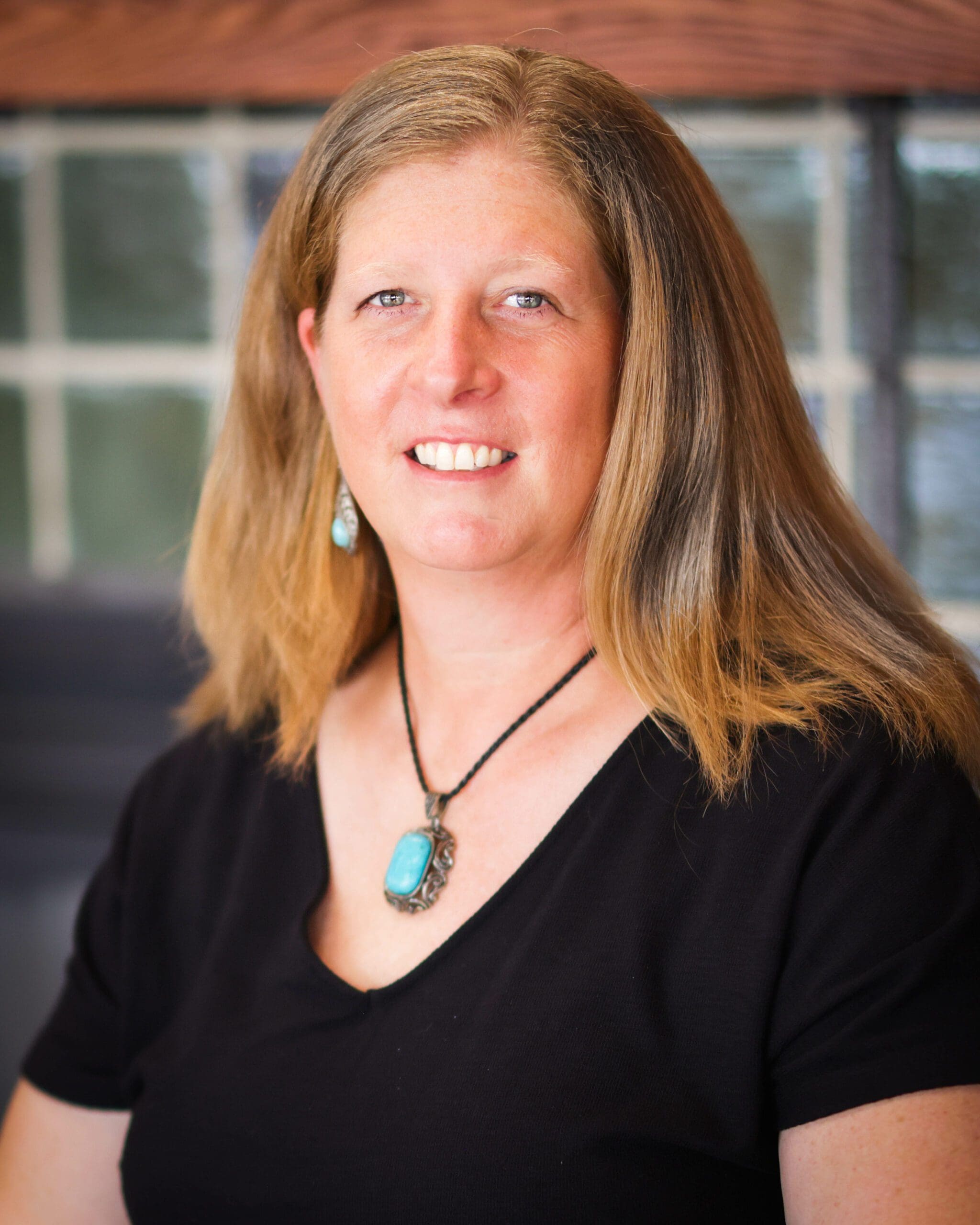Can you explain the mission of the League of Women Voters?
The League of Women Voters, a nonpartisan political organization, encourages informed and active participation in government, works to increase understanding of major public policy issues, and influences public policy through education and advocacy.
How was the LWV founded? What’s the organization’s history?
In 1919, the League of Women Voters of New York State was formed out of a desire to ensure that newly enfranchised female voters were educated, regardless of political leaning, to use their power effectively.
When was the Syracuse chapter founded?
On May 28, 1919, local members of the old Suffrage Party were invited to attend a luncheon and meeting at the Onondaga Hotel, where the question of forming a league for women voters will be taken up. The meeting was called by New York State Women Voters for the purpose of electing officers in this district which included Onondaga and Cortland counties. Politicians who opposed the meeting believed it was a covert effort to start a new political party.
The Onondaga League of Women Voters was officially formed in 1921. Later its name was changed to the League of Women Voters of the Syracuse Metropolitan Area.
How have the organization’s goals changed over its 100-year history?
While the League’s programs, priorities and procedures have changed over the years to meet changing times, a League pamphlet written in 1919 describes with remarkable accuracy its basic aims today. The organization has three purposes: to foster education in citizenship, to promote forums and public discussion of civic reforms and to support needed legislation.
You take certain policy positions, but you’re still a nonpartisan organization. Can you talk a little about that?
The Leaque’s non-partisan policy is maintained through our consensus process. We examine all aspects of a selected subject and try to reach agreement on which to base a position. The LWV’s reputation for fairness rests on its practice of thorough and impartial study. Members discuss the issues; pros and cons are researched; and everyone has an opportunity to express an opinion. Once the LWV has a position on an issue, material is published to promote that position, always ensuring the distinction between LWV action on specific issues and the League’s nonpartisan voter information.
We do not support a party or candidate; we only advocate for and support issues we have thoroughly studied.
What does it mean to you to be celebrating your centennial this year?
The League of Women Voters was formed after women in New York were given the right to vote in 1917, two years before the ratification of the 19th amendment to the U.S. Constitution in 1920 when women across the nation were granted the right to vote. The League was an outgrowth of the New York State Woman Suffrage Party. Although they had won the vote, it became clear that social change for women and other disfranchised groups would not be easy. It would be necessary to study the state of affairs in America and then vigorously lobby elected officials to advance democratic values in America. This has been our goal for 100 years and will continue into the future.
What kinds of things do you do to promote voting?
We provide a printed Voters’ Guide brochure that gives information on what offices are up for election in any given year, who is eligible to vote, registration information for absentee voting, military voters, and college students as well as other information related to voting in New York State.
Our electronic voters’ guide (Vote411.org) allows you to find information on if you are registered to vote, where you vote, and your personal ballot that gives you the offices and candidates you will be voting for all by simply entering your mailing address. Candidates are also given questions on the issues relating to the office they are seeking. This is an interactive process where the League provides questions and candidates submit the answers themselves.
Registering new voters is a continuous process throughout the year, focusing on registering young people and newly naturalized citizens. We are also available to organize and moderate candidate debates and forums.
What are your current legislative goals?
A few of our New York Legislative goals are:
- VOTER REGISTRATION MODERNIZATION, including automatic voter registration and same-day voter registration The League supports automatic voter registration as a means of decreasing costs and increasing accuracy of the voter rolls. Secure online voter registration should be expanded to serve all eligible citizens. The League supports Election Day registration, registering and voting on the same day, as a proven method of increasing voter participation. The League supports preregistration of 16- and 17-year-olds to ensure that their voting participation is routine before they attend college or enter the workforce.
- GOOD GOVERNMENT REFORMS we support are:
- Campaign Finance Reform:The League continues to advocate for campaign finance reform, believing that meaningful reform of the current laws is necessary for a successful public financing system. Priorities for reform include a significant reduction of all contribution limits, special “pay-to-play” limits on contributions by lobbyists and those who do business with the state and eliminating the LLC loophole.
- Ethics: The League will continue to advocate for the effective implementation and improvements of ethics laws, including monitoring the Joint Commission on Public Ethics (JCOPE) to make sure that it provides for effective and independent monitoring of state ethics. We also support changing the state constitution to provide that any state officer or local officer convicted of a felony involving the breach of public trust may be subject to forfeiture of their pension benefits.
- Legislative Reform: The League believes that the state legislature should adopt better methods for discharging bills and better use of the committee process, particularly the use of conference committees during the budget process. The League also supports more equitable distribution of funds to legislators for staffing and resource.
- HEALTHCARE
- The League intends to continue efforts to improve access, cost containment, equity, and safety in healthcare. In order to achieve these goals, the League supports allocation of medical resources to underserved areas, healthy living promotion, disease prevention, school-based health services, women’s health issues, long-term care, and adequate financing of the tobacco control program. The League supports a single-payer system as an acceptable method for public financing, which would lower administrative costs and promote equity, access, and quality healthcare for all. The League also supports measures for enhancing the safety of patients and staff in acute and long-term care facilities.
- JUDICIAL ISSUES
- Streamlining of the Court System: The League supports a unified state court system.
- Improved Judicial selection: The League believes judges should be chosen on the basis of merit and continues to support improvements in the judicial selection process. Candidates should be proactively encouraged to participate in the current system of Independent Judicial Elections Qualifications Commissions.
- Statewide Guidelines for Law Enforcement The League supports the adoption of statewide guidelines for law enforcement at all levels to prevent racial and economic profiling.
- Support of Adequate Indigents’ Defense Services The League supports a consistent statewide system with oversight by an Independent Public Defense Commission to ensure indigents’ defense is more equitable and uniform throughout the state.
- Alternatives to Incarceration: The League supports alternatives to incarceration for appropriate offenders. Drug and mental health courts that divert defendants to a more rehabilitative process and ex-offender reentry programs should be monitored and improved where appropriate.
- Juvenile Justice: The League supports the protection of children’s legal rights. Juvenile justice should focus on rehabilitation rather than punitive action. Children under the age of 18 should not be treated as adults in the criminal justice system.
- NATURAL RESOURCES
- Energy and Climate Change: The League supports legislation, regulation and executive action to protect natural resources, public health, and the economy from impacts of the fossil fuel industry and favors the development of renewable energy to meet emissions goals and slow climate change. We believe that the state should support renewable energy, including relevant qualifying criteria for subsidies. The liabilities, costs and expenses associated with fossil fuel operations should be directed to the industry.
- Hazardous Waste: The League supports the proper labeling and disposal of hazardous waste products and a ban on importing drilling and other “hazardous” waste from other states. We promote actions that move New York toward a Zero Waste future. The League supports bans on the use of microbeads in consumer products.
- Electric Grid: The League supports financing for and creation of an electrical grid that facilitates the distribution of renewable energy to the maximum number of people, enabling locally generated electrical power from renewable sources.
- Clean Water: The League has supported since 1970 the Clean Water Act and the Safe Drinking Water Act, and likewise supports infrastructure and other measures to prevent polluted wastewater and agricultural waste from migrating into our groundwater, rivers and streams. The League also supports funding to clean up toxic waste dumps and segregate and properly treat hazardous waste on land and remediate polluted waterways in our state.
- Agriculture: The League supports policies that protect food production and distribution while diverting food waste from New York’s landfills, incinerators and other waste treatment facilities.
- STATE FINANCES AND EDUCATION
- Greater Equity in Education Financing: Past Campaign for Fiscal Equity court-ordered state aid increases should be funded irrespective of the property tax cap. The League also opposes the use of “geographic shares” as a basis for allocating either operating or capital aid and believes that the past practices of “holding harmless” school districts and apportioning incremental aid by geographic shares perpetuate inequities for both pupils and taxpayers.
- Reform of the Property Tax System : The League advocates for uniform equitable assessment and property tax systems. The League supports consolidation and efficiencies that might result from reducing the number of units of government, but recognizes local control as a means of maintaining excellence in public education. The League accepts the necessity of local property taxes, while at the same time opposing overreliance on property taxes. The League favors implementing a property tax circuit breaker based on need, with an annual cost of living adjustment (in lieu of the STAR program) to alleviate the impact of high property taxes on some households.
- Opposition to the Education Investment Tax Credit: The League opposes the diversion of funds for the Education Investment Tax Credit or similar initiatives and believes that charitable deductions are a more appropriate means of encouraging philanthropy in this area. Large tax credits disproportionately reduce the tax obligations of high tax bracket taxpayers and create a two-tiered donor/beneficiary system.
- WOMEN’S ISSUES
- Fair Pay : The League supports fair pay reforms, including passage of equal-pay-for-job-titles-of-comparable-worth legislation.
- Paid Family Leave and Childcare : The League supports gender neutral paid family leave to care for a sick child, spouse, or parent. The League supports affordable, quality childcare, and compensation for childcare workers at a rate commensurate with responsibility and skill.
- Domestic Violence : The League supports measures to reduce the incidence and effects of domestic violence. We also support protections against discrimination for victims of domestic violence and human trafficking.
- Reproductive Choice : The League supports the constitutional right of privacy of the individual to make reproductive choices under its government position. The League believes that the federal constitutional protections of Roe v. Wade should be written into New York state law.
- SOCIAL WELFARE
- The Gender Expression Non-Discrimination Act (GENDA) : The League supports GENDA in order to protect transgender New Yorkers from discrimination in housing, employment, access to credit, medical care and public accommodations as well as provide additional protections under New York’s hate crimes law.
- Livable Wage : The League supports a living wage, based on our national position about meeting basic human needs. A living wage should provide sufficient income without government assistance, for food, clothing, housing, energy, transportation, health care, education, child care, and a small amount of discretionary income.
Can you explain New York’s recent changes to election law?
The big change to New York Election Law is early voting. It allows you to vote in person at a poll site within your county for nine (9) days, beginning Saturday, Oct. 26 and continuing through Sunday, Nov. 3. You do not need to have a reason or excuse to vote early. The poll sites for early voting will not necessarily be your usual poll site location. Each county will determine where the poll sites for early voting will be and the hours each site will be open for voting. Some counties will assign you to a specific poll site during early voting days and other counties will allow you to go to any poll site within the county to vote early. Each county can make this decision and you can see on the county Board of Elections (BOE) website or the New York State League’s website where you can vote in your county. A county is required to have one (1) poll site for every fifty thousand (50,000) registered voters, though some counties may have more.
There are six (6) early voting poll sites in Onondaga County. Voters can go to ANY of the early voting poll sites in this county during early voting.
On Election Day (Nov. 5) voters must go to their assigned Election Day poll site.
Onondaga County Board of Elections
New York State Board of Elections Voter Look Up
(to see if you are registered and to see your assigned Election Day poll site.)
VOTING TIMES
| Sat. 10/26 | Sun. 10/27 | Mon. 10/28 | Tues. 10/29 | Wed. 10/30 | Thurs. 10/31 | Fri. 11/1 | Sat. 11/2 | Sun. 11/3 |
| 9am-2pm | 9am-2pm | 9am-5pm | 12pm-8pm | 12pm-8pm | 7am-3pm | 7am-3pm | 9am-2pm | 9am-2pm |
EARLY VOTING POLL SITES
ARMOND MAGNARELLI COMMUNITY CENTER AT MCCHESNEY PARK
2300 Grant Blvd, Syracuse, NY 13208
Handicap Accessible: Yes
Parking: Yes, Free
Public Transportation: Yes, Centro
CLAY TOWN HALL COURTROOM (rear entrance)
Handicap Accessible: Yes
Parking: Yes, Free
Public Transportation: Yes, Infrequent, Centro
DEWITT TOWN HALL COURTROOM
5400 Butternut Drive, E. Syracuse, NY 13057
Handicap Accessible: Yes
Parking: Yes
Public Transportation: Yes, Infrequent, Centro
LAFAYETTE FIRE STATION #1 (rear entrance)
2444 Route 11 South, LaFayette, NY 13084
Handicap Accessible: Yes
Parking: Yes
Public Transportation: No
SOUTHWEST COMMUNITY CENTER
401-425 South Ave, Syracuse NY 13204
Handicap Accessible: Yes
Parking: Yes
Public Transportation: Yes, Centro
VAN BUREN TOWN HALL
7575 Van Buren Road, Baldwinsville, NY 13027
Handicap Accessible: Yes
Parking: Yes, Infrequent, Centro
Public Transportation: Yes, Infrequent, Centro
Your slogan is “Democracy is not a spectator sport.” Can you explain that?
Voting and participating in the political process is not a spectator sport. You need to get in the game by knowing who the candidates are, where they stand on the issues important to you, their qualifications to seek a specific office, who has endorsed them, where their campaign contributions come from and the techniques they use to campaign on. Do they promise the impossible? Evade the issues? Take part in name calling and rumor mongering?
Is there anything else you want people to know?
As we look to the future, we are excited by the fact that our dedicated members across the country are increasingly being joined by significant numbers of online activists who share the League’s commitment to Making Democracy Work. We will continue to fight voter discrimination and to keep secret money out of our elections in order to ensure that our elections are fair, free and accessible.
We will also continue to push for improved access to health care, as well as a sustainable planet for everyone. All the while, the League’s historic commitment to register, educate, and mobilize voters is not only stronger, but more effective than ever, utilizing such tools as an electronic voting guide, vote411.org a cutting-edge election information website utilized by millions of voters each election cycle.
As we celebrate our 100th anniversary, we celebrate our many accomplishments. League members are keeping their eyes and energies firmly on the future and the actions we will be undertaking to realize our goal: a better local community and state and a better America.
The League of Women Voters is not an exclusive club; we have a diverse membership. Anyone 16 years of age or over can join. For more information about the League or becoming a member go to our website, LWV.ORG , or email us at lwvsyr@gmail.com or call (315) 396-8225.





